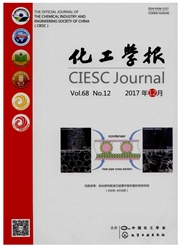

 中文摘要:
中文摘要:
以聚碳酸酯为材料,利用自行设计带有压缩功能的模具,采用常规注塑成型(IM)和注射压缩成型方法(ICM)对比研究制品在常温和低温环境下的拉伸力学性能;基于单因素实验方法,研究熔体温度、模具温度、模板压缩距离、延迟时间和压缩力对ICM制品残余应力和低温拉伸性能的影响规律。结果表明:在相同的环境温度下,ICM制品较IM制品有较大的屈服应力和弹性模量;低温环境下样品的拉伸性能有所提升,并在-40℃附近出现了聚碳酸酯分子的次级玻璃化转变;残余应力是影响ICM制品低温拉伸性能的主要因素,较高的熔体温度、模具温度、模板压缩距离,以及较短的延迟时间,较小的压缩力会减小ICM制品的残余应力,提高制品的低温拉伸性能。
 英文摘要:
英文摘要:
Tensile properties of conventional injection molding (IM) PC (polycarbonate) and injection-compression molding (ICM) parts in room and low temperature were compared. The effect of five process parameters (melt and mold temperature, compression distance, delay time and compression force) on residual stress and tensile properties of ICM parts under low temperature was investigated systematically. The results showed that higher tensile yield stress and Modulus were found for ICM parts compared with IM part. Tensile properties of ICM or IM parts were improved under low temperature. Secondary transition were discovered around?40℃ for PC. As the most influenced morphology, the residual stress of ICM parts has the opposite variation as the function of process parameters. Higher melt and molding temperature, bigger compression distance, shorter delay time and smaller compression force can be helpful to give lower residual stress value, and thus to improve the tensile properties.
 同期刊论文项目
同期刊论文项目
 同项目期刊论文
同项目期刊论文
 期刊信息
期刊信息
